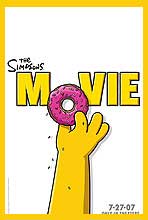This video is worth watching.
It appears that there is a documentary (mockumentary?) in production that takes on Christian excesses in the USA. Looks like a no-brainer!
(HT John McLaughlin)

This video is worth watching.
It appears that there is a documentary (mockumentary?) in production that takes on Christian excesses in the USA. Looks like a no-brainer!
(HT John McLaughlin)
For the connection between Biblical Hebrew and Greek and the joy of sex, see here.
I can’t say my experiences learning biblical languages were anywhere near as bad (I do recall being very intimidated when I sat down the first day of Ugaritic class and the professor handed me a text and said “read”!)
While the rant post is quite funny, it does raise the question of how to teach biblical languages in such a way that your students don’t “off” themselves (or at least don’t write a blog post about the horrible experience some years later).
John Hobbins, in a couple of posts over at the ever-insightful Ancient Hebrew Poetry blog, has rightly lamented the state of language training in North American seminaries. The sad reality is that even those seminarians who take biblical languages end up not using them — obviously with some exceptions — and if you don’t use it, you loose it. There are probably many different reasons for this state of affairs. Most seminaries appear to have lower academic standards than in the past and minimal language training. There is also a fear of language learning among seminarians. I don’t know how many times I have heard students worrying about taking Greek or Hebrew. Perhaps the biggest problem is that many consider it irrelevant — and if you look at what is considered acceptable preaching in many churches today then a psychology degree is probably more relevant than any language training! (A friend’s dad commented the other day about a local pastor that “he a good preacher, but he doesn’t know his Bible”!?!).
And while I agree with John about the need for more language training, I would add that seminaries need to train women and men to not only exegete the Bible, but also to exegete our culture and think theologically about both.
It appears that this problem isn’t just limited to Christianity. In a more recent post, John has this excellent quote from Ismar Schorsch (then President of Jewish Theological Seminary of America) that highlights that the lack of intellectual rigour in North American religious life:
Faith once moved us to study our heritage deeply, while truth asked of us that we do it critically, in light of all that we know. Willful ignorance was never an acceptable recourse. The interaction set us apart as the vital center of modern Judaism.
Schorsch’s full speech may be found here.
![]() So, as you may guess from my last post, I’ve been on a Simpsons kick the last little bit. I’ve been eating Frosted KrustyO’s for breakfast the last couple days. The other night I enjoyed a cold can of Buzz cola. Even though I’m not a huge fan of comic books, I enjoyed reading the “special original issue” of Radioactive Man.
So, as you may guess from my last post, I’ve been on a Simpsons kick the last little bit. I’ve been eating Frosted KrustyO’s for breakfast the last couple days. The other night I enjoyed a cold can of Buzz cola. Even though I’m not a huge fan of comic books, I enjoyed reading the “special original issue” of Radioactive Man.
I even made my own Simpsons avatar of myself — I think it turned out OK, though the options just couldn’t capture all of my unique features! (AKMA’s avatar turned out a bit closer to home, I think).
On July 27 I will probably be at the cinema viewing The Simpsons Movie. As with any movie that is hyped too much, I such hope I am not left saying D’oh!
UPDATE: One of my soon to be former students made some changes to my avatar… I imagine many of my students would like the adjusted one better. What do you think?

Unless you have been living under a rock for the last twenty years, you are familiar with television’s favourite animated family, “The Simpsons.” The satirical parody of middle class America family life follows the lives of Homer, Marge, Bart, Lisa, and Maggie Simpson — and lampoons pretty much everything you may hold dear in the process.
 The show had its start as a regular feature on Fox’s “The Tracey Ullman Show” in 1987. When the show was cancelled, “The Simpsons” was developed into its own series, airing its first episode on December 17, 1989. Since then the series has completed eighteen seasons and will commence its nineteenth (and last) season in the fall.
The show had its start as a regular feature on Fox’s “The Tracey Ullman Show” in 1987. When the show was cancelled, “The Simpsons” was developed into its own series, airing its first episode on December 17, 1989. Since then the series has completed eighteen seasons and will commence its nineteenth (and last) season in the fall.
But the big news about the world’s favourite yellow family is that they are hitting the big screen in a couple weeks. That’s right, The Simpsons Movie (David Silverman; IMDb) opens in Canada on 27 July 2007 — and I’ll be there with my Homer slippers on.
 While in its first few seasons the show raised the ire of a number of conservative Christians who saw the Simpsons’s family as bad role models (among other things), many (including myself) recognize that “The Simpsons” is actually one of the most religious shows on television. Religion and spirituality are frequently satirized in the show, whether it’s Reverend Lovejoy’s deathly boring sermons (many episodes), Homer’s personally created do-it-yourself religion of Homerism (“Homer the Heretic,” 9F01), Lisa’s rejection of commodified Christianity and turn to Buddhism (“She of Little Faith,” DABF02), or the hilarious retelling of favourite OT stories in “Simpsons Bible Stories” (AABF14) and the Simpson-style nativity story in “Simpsons Christmas Stories” (HABF01). While other religions are spoofed, cultural Christianity — whether Catholic, Mainline, or Evangelical — receive the most attention. On the one hand Ned Flanders and family are an over-the-top caricature of conservative evangelical Christianity, but on the other hand they are the most moral characters in the show. Ned is a nerd, yes; but he is a nerd with moral integrity.
While in its first few seasons the show raised the ire of a number of conservative Christians who saw the Simpsons’s family as bad role models (among other things), many (including myself) recognize that “The Simpsons” is actually one of the most religious shows on television. Religion and spirituality are frequently satirized in the show, whether it’s Reverend Lovejoy’s deathly boring sermons (many episodes), Homer’s personally created do-it-yourself religion of Homerism (“Homer the Heretic,” 9F01), Lisa’s rejection of commodified Christianity and turn to Buddhism (“She of Little Faith,” DABF02), or the hilarious retelling of favourite OT stories in “Simpsons Bible Stories” (AABF14) and the Simpson-style nativity story in “Simpsons Christmas Stories” (HABF01). While other religions are spoofed, cultural Christianity — whether Catholic, Mainline, or Evangelical — receive the most attention. On the one hand Ned Flanders and family are an over-the-top caricature of conservative evangelical Christianity, but on the other hand they are the most moral characters in the show. Ned is a nerd, yes; but he is a nerd with moral integrity.
“The Simpsons” has received a fare amount of attention from cultural critics and other academics. In terms of its long-standing portrayal and parody of institutional religion and popular culture, I can’t think of any television show that comes close to its incisive critique (although some come close). Besides the many “official” publications related to the series, there are also a number of analyses of “The Simpsons” available. Here are some of my favourites:
Well, I have written enough… time to go to Kwik-E-Mart for a squishee and play a game of chess with my The Simpsons chess set. (I only wish I lived in Coquitlam, BC so I could go to a real Kwik-E-Mart! D’oh!)